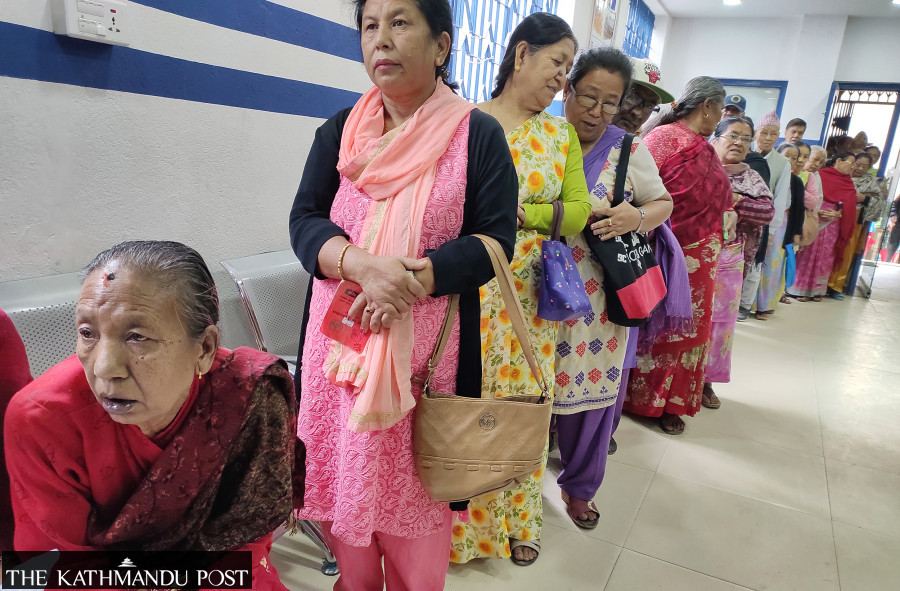Editorial
Unsustainable spending
The populist policy of generous cash handouts could ultimately bleed the state coffers dry.
The constitution envisions Nepal as a socialism-oriented state committed to the health and wellbeing of all its citizens, especially the old and the infirm who cannot adequately look after themselves. This could entail having a robust public healthcare system that guarantees at least a basic level of quality care. Or promoting a culture where the elderly are more valued and prioritised. But for a relatively poor country like Nepal struggling to emerge from the Covid-19 pandemic and caught in a debilitating credit-crunch, a wrong way to go about it, for instance, would be to casually tamper with elderly allowances. But successive governments have been doing just that: decreasing the eligibility-age limit and increasing the amount of monthly handouts. This has been happening even though the country’s median age has been steadily inching up. While an average Nepali barely lived to be 35 in 1960, he or she can now be expected to cross 71. So, if anything, the age threshold for such allowances should be increased. Moreover, there is scant evidence that cash handouts bring about any kind of meaningful change in the lives of their recipients.
Yet such allowances continue to be increased as they are popular among the elderly, a fairly reliable vote-bank. In its budget announced last May, the current government lowered the age-limit from 70 to 68, clearly with the upcoming elections in mind. This translates into an additional cost of seven billion rupees a year. Before that, the KP Oil government had increased the monthly elderly allowance from Rs3,000 to Rs4,000. In fact successive governments have competed to pander to elderly voters since such allowances were first introduced during the tenure of Manmohan Adhikari, at Rs100 a month. Gradually, the scope of the population covered by similar social security schemes was widened to include single women and those with disabilities—and the list of beneficiaries continues to expand.
Such populist policies brought without much homework adds to the financial burden on the state when the precious little money could have gone into more worthy causes, for instance in controlling the troubling spread of the ongoing dengue menace. On the other hand, the kind of casual cash handouts currently being offered could bleed the state coffers dry. (For one, the above-68 population cohort has been steadily expanding.) The state’s aim should rather be to work out ways to promote enterprise and boost people’s earnings. If that happens, the state coffers will swell with higher tax collections. The money could then be spent on various measures to add comfort to the lives of the elderly and marginalised people. The tricky thing about these allowances is that they are easy to start but difficult to discontinue. In a highly competitive electoral system, ruling parties could be committing hara-kiri by cutting such benefits. These populist policies might buy the political parties a few extra votes but it will be a classic case of missing the forest for the trees—and a rum way to go about building a socialism-oriented state.




 13.12°C Kathmandu
13.12°C Kathmandu














